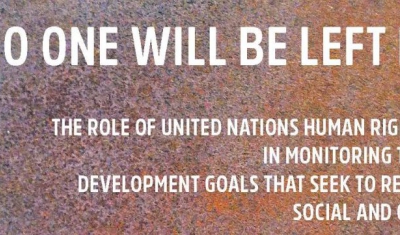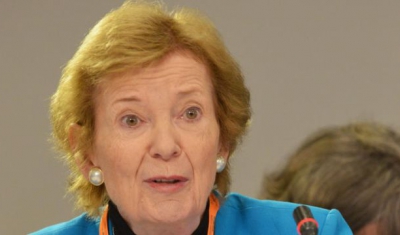No One Will Be Left Behind looks at the role of United Nations (UN) human rights mechanisms in monitoring the Sustainable Development Goals (SDGs) that seek to realize economic, social and cultural rights (ESCR). It discusses the mutually reinforcing relationship between the SDGs and ESCR. ESCR can offer a legal foundation and guidance in the implementation of SDGs, and the SDGs may increase support for the realization of ESCR.
The publication highlights that the weakness of the 2030 Agenda lies in its limited accountability framework, based on voluntary national reviews and soft guidance from peers. In that context, UN human rights mechanisms – UN treaty bodies, the UN Human Rights Council and its Universal Periodical Review and Special Procedures – can give the SDGs a strong legal basis and provide a means of accountability via independent mechanisms. They can transform the SDGs’ beneficiaries into rights-holders, and UN Members States as those having legal obligations to implement the 17 goals. The international human rights system can provide guidance to states in the implementation of the SDGs, as well as to national, regional and international mechanisms established in the framework of the 2030 Agenda, notably the High-level Political Forum on Sustainable Development (HLPF).
The publication draws attention to the need to fully integrate human rights into the implementation and monitoring of the SDGs, while also providing a set of concrete recommendations for states, UN human rights mechanisms, the Office of the UN High Commissioner for Human Rights and the HLPF as to how this might be done.
The Research Brief Economic, Social and Cultural Rights and the Sustainable Development Goals provides a summary of this publication.
No One Will Be Left Behind
In this video, Dr Chistophe Golay, Strategic Adviser on Economic, Social and Cultural Rights (ESCR) at the Geneva Academy, presents our new publication No One Will Be Left Behind which looks at the role of United Nations human rights mechanisms in monitoring the Sustainable Development Goals (SDGs) that seek to realize ESCR.









